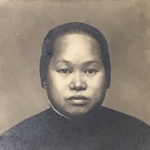In my great-grandmother’s Chinese Exclusion Case File is an interview between an immigration official and my great-grandfather SAM Chong. This was in 1918, when the Chinese Exclusion Era was in full force. The only reason GOO Tan Choy, my great-grandmother, was not excluded from entering the Territory of Hawaii as a Chinese person, was because she was the wife of a merchant. Her entry hinged on Sam Chong proving that he actually belonged to the “exempt” merchant class, so he was interviewed to verify his merchant status. Among the many questions asked were several specifically regarding the small restaurant attached to the store he ran. Why would the interviewer both to ask so many specific questions?

Why would the interviewer care who was running the restaurant, whether SAM Chong worked in the restaurant, and where the money was collected? Finding the answer to this question emphasizes how understanding relevant laws will help you understand your genealogical sources. The answer lies in the definition of a “merchant” as written by Congress.
A merchant is a person engaged in buying and selling merchandise, at a fixed place of business, which business is conducted in his name, and who during the time he claims to be engaged as a merchant, does not engage in the performance of any manual labor, except such as is necessary in the conduct of his business as such merchant. (Emphasis added; you can see the US Code here).
Geary Act of November 3, 1893. 28 Stat. 7, Ch. 14. Sec. 2
And that is why the inspector asked so many about SAM Chong’s restaurant. To be considered a merchant, SAM Chong could not be seen as performing any manual labor in his restaurant. Otherwise his wife and daughter might now have been permitted to join him in Hawaii.


